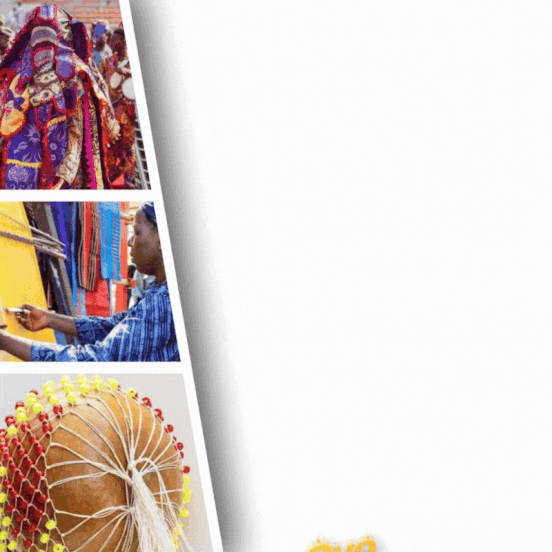When the conversation turns to Oyo politics, it is certain to mention Senator Teslim Kolawole Folarin. From the despotic era of political godfather late Chief Lamidi Adedibu to the current climate of strategic re-alignments, Folarin has been that recurring actor on the scene, lacing between central protagonist and controversial figure. Now, as 2027 gubernatorial talks approaches, and political forces begin to gather again, his name resurfaces as a potential contender, perhaps for the very last time. Who knows?
Folarin, a man of pedigree, aggressive ambition, and an unyielding political appetite, he has spent over two decades in the trenches of Nigerian politics, always attempting to climb the highest podium in Oyo State. His political journey has been tagged by legislative highs, executive defeats, elite attention, public skepticism, and a reputation that polarizes rather than unites. However, whether liked or hated, he remains focal and important to every serious conversation about Oyo’s political future. No doubt!
Born in 1963, into Baale House in Oja Igbo, Ibadan, Folarin inherited more than a family name, he inherited influence. Today, he holds the traditional title of Laguna Olubadan and he is the Mogaji (head) of his lineage, deeply rooting him in Ibadan’s aristocracy and that political terrain. He commenced his education in Lagos, attending Methodist Boys’ High School, before graduating with a B.Sc. in Political Science from the University of Ibadan. He also obtained a diploma from Harvard University, USA. Before returning to Nigeria, he worked in the UK civil service, including time at the Department of Trade in London. Hence, his return in the early 2000s was timed with the zenith of Baba Adedibu’s political influence. It was under this legendary kingmaker’s wing that Folarin shot to relevance and popularity, grabbing the Oyo Central senatorial seat in 2003 at just 39 years old, under the PDP.
Moreover, in the Nigerian Senate, Folarin thrived. He quickly became the Senate Leader, chaired the Committee on Local Content, and played principal roles in national legislative efforts, including the 2008 power probe. He also sponsored major bills like the Insurance Act and the Armed Forces Pension Act. Only few can deny his impact in Abuja back then. However, beyond the Senate, Folarin has battled to replicate his success. In 2014, he ran for governor under the PDP and lost to APC’s Abiola Ajimobi. Even more, after defecting to the APC in 2017, he salvaged his Senate seat in 2019, defeating Monsurat Sunmonu, only to lose again the 2023 governorship race to incumbent Governor Seyi Makinde of the PDP.

Today, despite his experience and obvious exposure, Folarin remains one of the most controversial figures in Oyo politics, perhaps due to his hot-button antecedents. He is often seen as a vestige of the Adedibu era, a guile power player whose political calculations seem more self-serving than visionary. Many even draw comparisons between him and Baba Adedibu, not in terms of influence, but in political tacks. Like Adedibu, Folarin is that master of backroom maneuvering, often accused of prioritizing internal control and elite deals over mass appeal. His regular critics see him as a typical example of the “recycled elite” whose presence provokes the emergence of new leadership.
While he commands a degree of respect within Ibadan’s traditional and political elite, his popularity among everyday electorates, particularly in Oke-Ogun, Ogbomoso, and Ibarapa, remains weak and inconsistent. Even in his home turf, the cracks are blatant. At the last 2023 gubernatorial election, Folarin lost his polling unit in Ward 5, Lako Compound, Idi Ose, Ibadan North-East Local Government Area, to Governor Seyi Makinde of the PDP. The margin was decisive: Makinde won with 196 votes to Folarin’s 89, and couldn’t even win any local government in Ibadan, his home, a result that highlighted how disconnected he has become from the people he claims to represent. He is often described as a “capital city politician” attempting to take a state that has become increasingly unpredictable, youth-driven, and demanding of authenticity over the heritage.
Yet again, another clog around Folarin’s neck is his continued penchant for political quarrels. Over the years, he has had high-profile fallouts with multiple stakeholders, both within PDP and APC. His relationship with party leaders, including President Bola Tinubu, has not always been smooth, at least. In fact, one could recall that President Tinubu once publicly advised Folarin to reconcile with aggrieved stakeholders and rebuild his political structure ahead of the last 2023 elections, a warning he allegedly ignored, to his own electoral peril. Even within his party, Folarin is often viewed with suspicion. Some regard him as divisive; others, as too calculating. He even battles to build coalitions that last, choosing loyalty to his own ambition over the cohesion of the party machinery. Last election was evident.
And then there’s the question of funding. In the 2023 race, Folarin often alluded to his lack of financial war chest, saying openly that he was contesting without money. While this soft-soaped him to some as a “humble candidate,” others saw it as an excuse for a poorly coordinated campaign. In a political landscape where resources and visibility matter, his inability to mobilize strong financial backing might again be a liability in 2027. Maybe?
Teslim Folarin will likely feature on the ballot in some form come 2027, whether as a contender in the APC gubernatorial primary or as a fallback Senate candidate, where internal power dynamics can be more easily navigated. But unlike in previous cycles, his path is narrower than ever. The political frame has shifted, and so has public sentiment. More telling is his recent political silence. Once a fiery voice in opposition, Folarin has gone quiet, offering little in terms of critique or alternative vision to the incumbent Governor Seyi Makinde. For a man with such a long-standing presence in Oyo politics, his absence from the current political conversation speaks volumes, and may cost him relevance where it matters most.
However, since 2023, new faces and stronger regional blocs have emerged in the Oyo APC. Hopefuls from Oke-Ogun, Ogbomoso, Ibarapa and even Ibadan are building momentum. Younger politicians, technocrats, and women are demanding space. There’s a sense that the party, and the state, is ready to move on from old power formulas. To stand a chance, Folarin must do more than rally elite endorsements. He must rebrand. He must reconcile with former allies, appeal to the youth, and develop a message that echoes beyond Ibadan. More importantly, he must show voters that he has learned from past failures and can deliver inclusive, forward-thinking governance.
Again, in a State where political memories are long and defeats are rarely forgotten, 2027 might just be Teslim Folarin’s last opportunity to redefine his political legacy. He is experienced, connected, and certainly persistent. However, elections in Oyo are no longer won with titles and history, they’re won with trust, “good”antecedents performance, and populism. However, whether he contests or not, Folarin will remain a formidable voice. But to finally sit at Agodi Government House, he must evolve from being just another name on the ballot to a candidate that genuinely inspires belief.
Better still, securing the APC, PDP, Accord or any Party’s ticket might not even be difficult for him, as Teslim will do it in Teslim ways. Getting the ticket has almost always been easy for him whenever he is ready to contest. Some said he chased Seyi Makinde out of the PDP and hijacked the party’s ticket in 2015. A similar scenario played out in 2023 when he was accused of pushing Bayo Adelabu out of the APC to seize the governorship ticket. Folarin knows how to get through internal politics. But winning over the people has always been the bigger battle.
So, the ultimate question remains: Do the people of Oyo still want Teslim Folarin, or has his brand of politics expired in an era hungry for change? Is he better made for the Senate, a space where he has proven usual capacity, or does he still have a real shot at leading from the executive level? Is it not high time that Folarin forgets the Adedibu style of politics, where people and power are imposed, and instead embraces the ‘Èmi Ló Kàn’ sympathy model, one that appeals to emotion, story, and connection, rather than dominance and entitlement? Will 2027 be Folarin’s final act, or his long-awaited redemption?
Ogungbile Emmanuel Oludotun writes for Oyo Affairs

